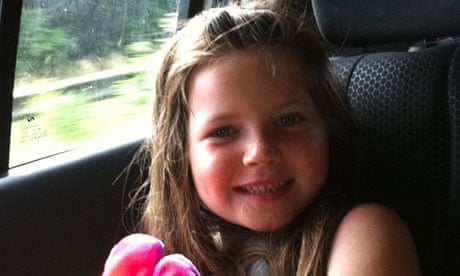Garry Mackay, the father who survived a canoe accident on Loch Gairloch in the Scottish Highlands that claimed the lives of his daughter, and a friend and his two sons, has described how he made the "hardest decision of his life" to leave the children and swim to shore for help, believing they were wearing life jackets that would help them survive.
But he did not realise they only had buoyancy aid jackets, so were not supported upright in the bitterly cold water when their canoe overturned on 26 August.
Mackay's daughter Callie, eight, swam more than 500 metres across the loch to safety but her five-year-old sister, Grace, died after being rescued from the water.
Mackay's friend Ewen Beaton, 32, also drowned, along with his sons, Ewen, aged five, and Jamie, two. Despite extensive searches, Beaton's body has not been found.
"When I decided to swim to the shore, I believed the children were wearing life jackets," Mackay, 35, said in an interview with the Scotland on Sunday newspaper.
"I wasn't sure I would make it [to shore] but I thought that if I managed to get help they would be OK because, although their bodies slow down with the cold, children can survive for quite a long time in the sea," said Mackay, a van driver and former soldier. "I didn't realise they were only wearing buoyancy aids, which don't keep your head out of water if you lose consciousness."
Buoyancy aids are designed as a flotation rather than life-saving device and are commonly used for surface watersports, such as canoeing and kayaking.
The canoe the families were in overturned when Mackay stood up to store some fish Beaton had caught, and the families were cast into the water.
"At first I thought, it will be OK because we will keep holding on to the boat and someone will rescue us," said Garry. "But then I looked around and there was nothing – not a house, a boat or a person – in sight and I realised we were in serious trouble."
Eventually the canoe began to sink and Beaton either lost his grip or, with his sons clinging to him, tried to swim.
"If he did, he didn't get further than 4ft before he went under," said Mackay. When Beaton came up a second time, Mackay shouted to his sons to let go of him. "Ewen said 'I've let go'," said Mackay. "And I knew that was him away."
Mackay then decided to swim for help. "It was the hardest decision I've ever had to make," he says. "But I knew if I stayed I would drown too and the kids would never be found."
He reached the shore and raised help. Ewen and Jamie were given CPR on the beach by a doctor, who Mackay remembers shedding "desperate tears". The children were then airlifted to Raigmore hospital in Inverness.
Grace, who had been found floating face down, was taken to Broadford hospital on the Isle of Skye where nurses worked on her for more than four hours. She had an operation at Yorkhill hospital in Glasgow but at around 2pm the following day she was declared dead.
"We were allowed to hold her and give her a cuddle before they took all the tubes out," Mackay said. "She was such a beautiful little girl, but honestly if you [multiplied] her beautifulness by three, that was her heart. She was so kind and caring."
Mackay wants to highlight the difference between buoyancy aids, which all the children were wearing, and life jackets – a distinction he believes is lost on many people.
"I have lots of 'what ifs' about that day," said Mackay. "But as far as what happened after the canoe capsized, my mind, my heart and my conscience are clear. I did everything I could to try to save the children."
